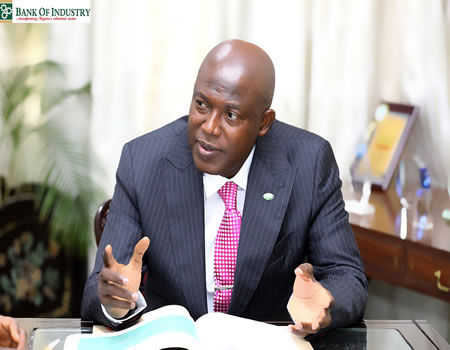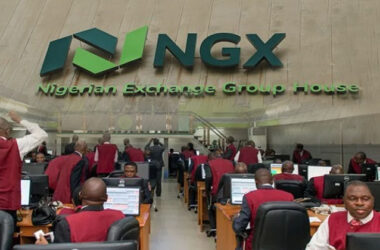The Managing Director/Chief Executive Officer of the Bank Of Industry, Okukayode Pitan has said that,
Globally, SMEs account for the majority of business enterprises by
contributing to production output, exports, and boosting innovation,
which represents hallmarks of economic growth in most economies contributing between 40-55% of GDP and 50-80% of employment in most economies according to World Bank.
Pitan who made this known recently at the regular weekly meeting of the Rotary Club of Lagos disclosed that SMEs possess great potential for employment generation, improvement in local technology, economic diversification, development of indigenous
entrepreneurship and wealth, noting that, 22% of Africa’s working-age population are entrepreneurs – the
highest entrepreneurship rate in the world according to (AFDB).
According to him, “in Nigeria today, we have ~39.7 million MSMEs, contributing:
46.3% to National GDP, account for 96.7% of businesses, 87.9% of employment, 6.2% to exports, adding that, with a rapidly growing population that is expected to increase from 200 million today to 410 million in 2050, an opportunity exists for Nigerian SMEs to provide services, jobs, innovation
and economic growth to meet the country’s growing needs.
The BOI Boss argued that, despite these existing opportunities and their strategic role in national economic development, most SMEs still face a number of challenges limiting their ability to thrive, compete and succeed.
Highlighting some of the challenges bedelveling SMEs, he pointed out that, limited Access to Finance, inadequate
Infrastructure (Rail, Road, Power),
Burdensome Administrative &
Regulatory Framework, Multiple Taxation, Socio-Cultural Problems, Unstable Policy Environment, Lack of Medium to Long Term Planning,
Insecurity and Safety are the major obstacles to the growth of SMEs.
While giving strategies for SMEs to survive and thrive, he pointed out that,
“identify and retain key customer
segments by addressing changing consumption/demand patterns, building a customer profile, building customer loyalty through shared values, becoming difficult to replace, amend value proposition to align with changing demand of key customer segments.”
“be proactive enough to ensure key customers do not switch to competitors, increase value-based offerings i.e. discount/bundle packages, introduce convenience options such as delivery for existing and new customers,review and re-strategise production channels with the goal to improve customer
satisfaction, identify the efficiency of key production activities, localise majority of suppliers to reduce the risk of supply chain disruption, leverage digital channels as a means to reach customers faster e.g. websites, social media platforms i.e. (WhatsApp for business, Facebook, Instagram) etc.” He noted.
Speaking on how the of bank of industry is positioned to support SMEs he stressed that, “BOI is a Key Stakeholder in Nigeria’s Industrialisation Drive. The is Nigeria’s oldest, largest and most successful Development Finance Institution (DFI). Incorporated in 1959 as the Investment Company of Nigeria (ICON), transformed into Nigerian
Industrial Development Bank in 1964 and ultimately into Bank of Industry (BOI) in 2001.”
His words: “BOI is one of 15 government agencies under the Federal Ministry of Industry, Trade and Investment (FMITI). The execution of our developmental mandate is guided by the Nigeria National Development Plan (2021-2025). Consequently, BOI’s mandate is the transformation of Nigeria’s industrial sector by providing financial and advisory support for:the establishment of large, medium and small projects/ enterprises, and the expansion, diversification, rehabilitation and modernisation of existing enterprises. BOI supports projects with potential developmental impact, and the capability to generate considerable multiplier effects such as job creation, import substitution and poverty alleviation;
all of which would have significant positive effects on the socio-economic condition of the nation.”
Continuing, he disclosed that, BOI was established “to be Africa’s leading
development finance institution operating under global best practices”
“Providing financial assistance for
the establishment of large, medium & small projects; as well as expansion, diversification and modernisation of existing enterprises; and rehabilitation of existing ones.”









